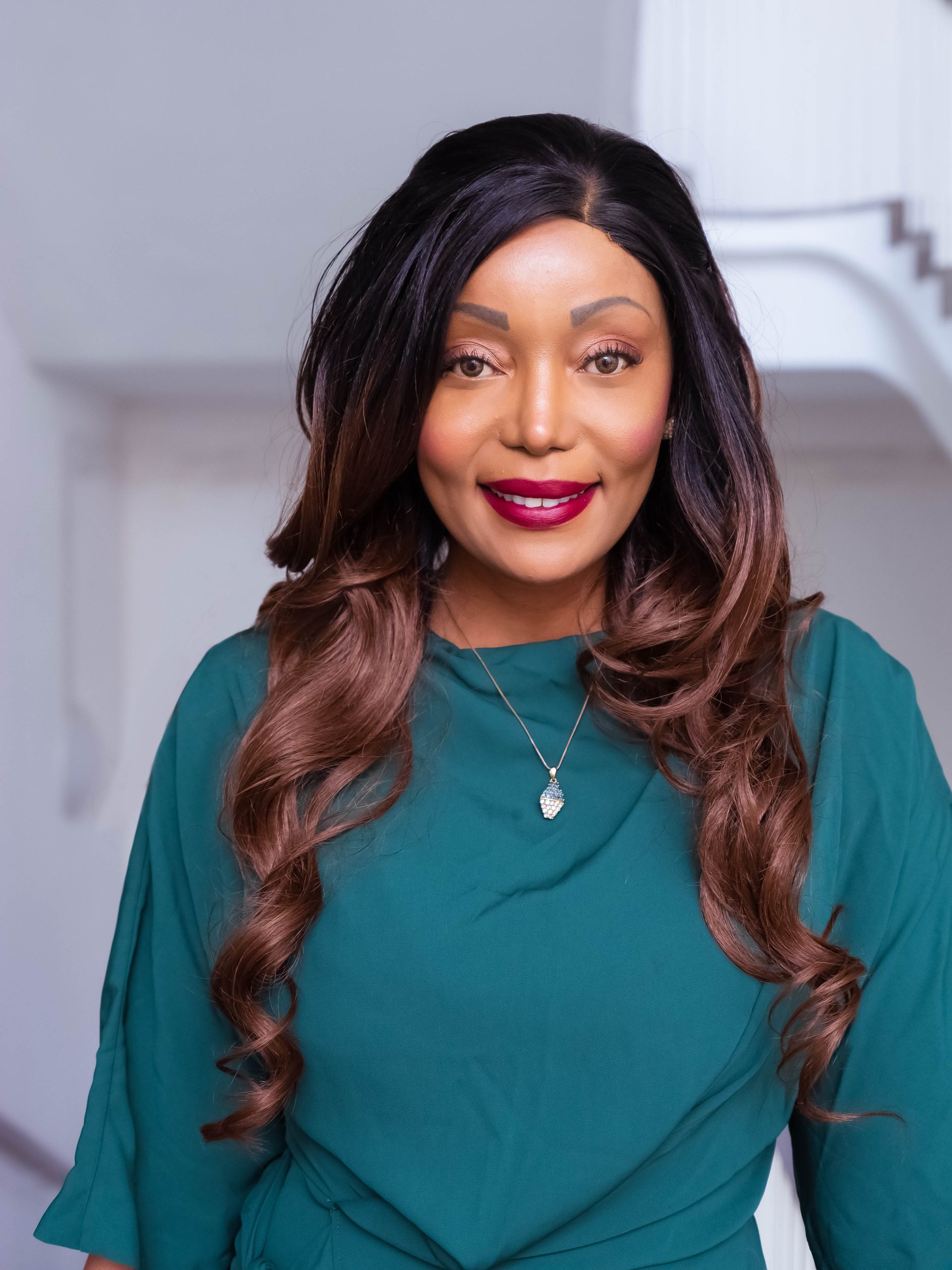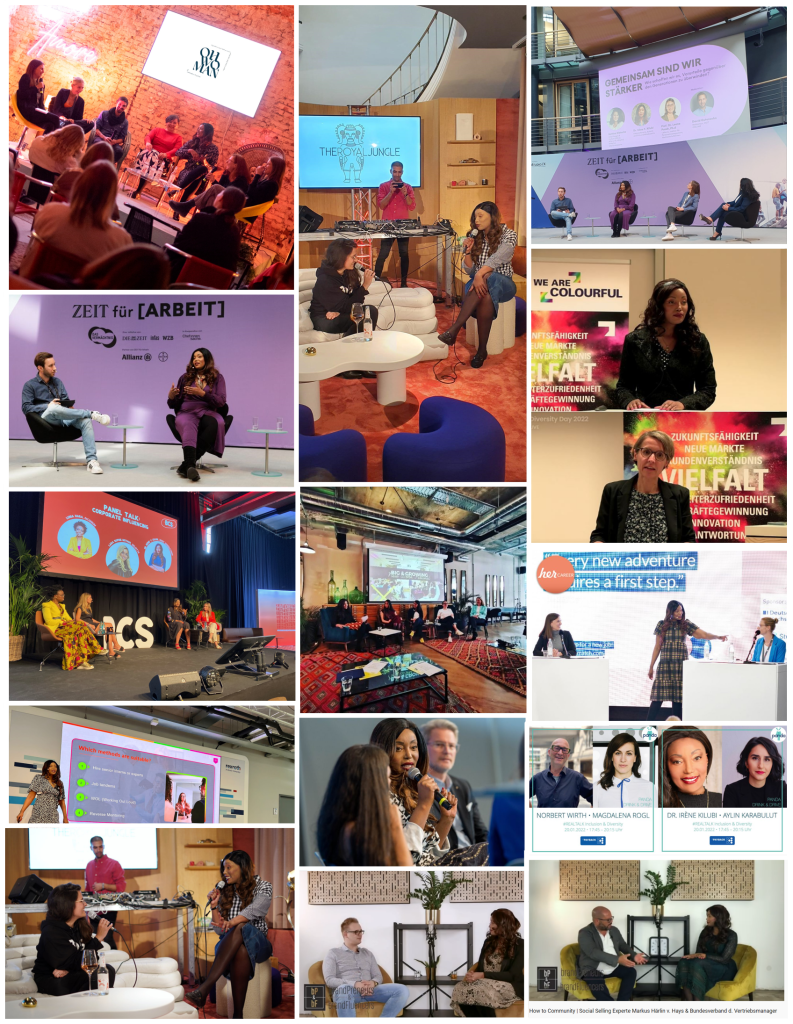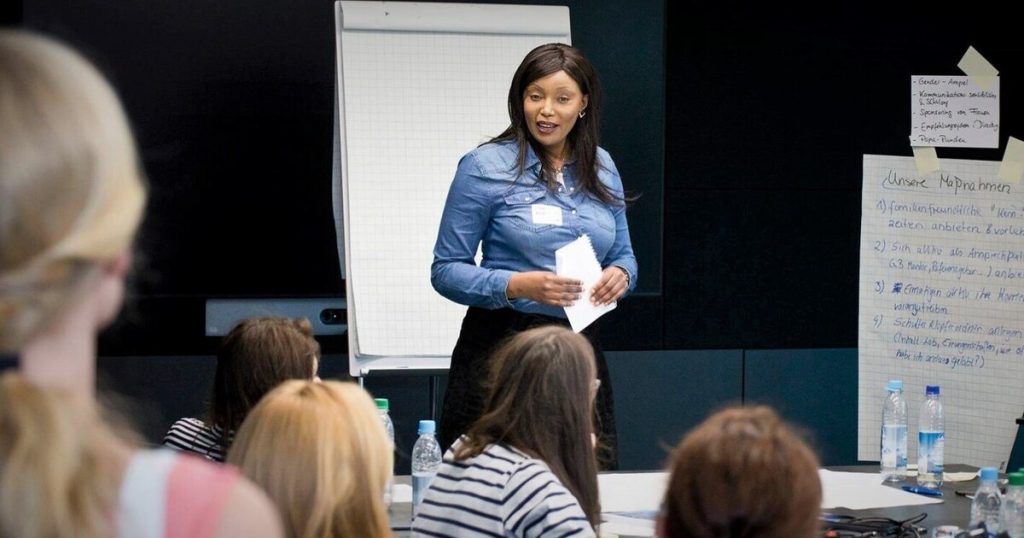Dr. Iréne Y. Kilubi (she/her)
For me, diversity also means taking into account the person's respective life situation, professional background, expertise and skills. For me, diversity actually means bringing people's individuality together.

I am an entrepreneur, advisory board member, university lecturer, moderator, speaker and very versatile, but I have two core topics. Firstly, my agency brandPreneurs & brandFluencers: we are committed to turning employees into brand and value ambassadors for companies.
And then, almost three years ago, I launched the social impact initiative JOINT GENERATIONS. Our credo is: the future is young AND old. So, we build analog and digital bridges between the generations for better collaboration.
No more age discrimination – in both directions – no ageism and no adultism. And educational equality. Everyone should and must have access to education.
Diversity is basically described in seven dimensions: Age, gender, social origin, religion, ethnic background, physical and mental impairment and sexual identity. But for me, diversity is even more than that: it is also about taking into account the person’s respective life situation, professional background, expertise and skills. So, for me, diversity actually means bringing together the individuality of different people.

If I pick out the aspect of gender diversity, growing up I never had the feeling that I was treated differently because I was a woman. On the other hand, it was different with my skin color, I did feel that.
Maybe that’s also because I had a single mother. She treated us boys and girls equally. My brother coached a women’s soccer team, two of my best friends played soccer and we were always very tech-savvy. But that all changed when I started working. Suddenly people were commenting on everything: “As a woman, you should do it this way” or “As a woman, you earn really well.”
When I started in the automotive industry back then, there were hardly any women in the technical field, I was absolutely exotic. A colleague said to me at the time: “You still look like a woman!” My style is also pink and red lipstick, my hair done and a costume. I was often mistaken for the team assistant. The scales fell from my eyes and I realized more and more often in which situations I had simply accepted this unequal treatment. I used to be really naive about this.
We do traditional educational work in the form of seminars, webinars, articles and lectures. We also do committee work and provide advice in the business sector. We have also developed the “Reverse Mentoring App”, in which we turn classic mentoring around: Young people are mentors for experienced people. So, there is always a generation between the two people involved. I have always been involved in innovative areas and I am firmly convinced that mixed-age teams can ensure a country’s ability to innovate. We are making a lot of progress here and want to expand this even further. For example, in terms of cooperation with companies and public institutions.
First and foremost, older employees are more expensive. I don’t believe that they are fundamentally denied expertise, unless it’s about digitalization. People often don’t trust older people with technology. And that’s a shame, because so much potential is lost. It’s precisely this experiential knowledge that only develops over a longer period of time. It’s not just about the internal perspective, i.e., that older employees feel seen and heard, but also the external perspective. We live in a silver economy. The older generation has the purchasing power and demographic change is taking hold. We are an ageing society, and if we don’t include these perspectives, we will simply miss the market.
I was attracted by the fact that the format is undergoing a complete transformation from the inside out. With Max Klemmer’s takeover, the criteria are now different and the communicative approach is changing. Until recently, for example, there was an age restriction, which was dropped on our advice. They are serious about it. They are really thinking about it. The credo now is: we want to make women who take responsibility visible. It’s about intellect, about women who want to make a difference.
Let’s be honest: when we talk about the term feminism today, which still has negative connotations, the need is already clear. Even I had to learn what feminism actually means: nothing other than advocating equal rights between men and women. Every person should stand up for that. Formats like the new Miss Germany take this into account. We have to push the issues and make women visible who stand up for a fairer future and also show this in the media, build up a media cover. The media contribute so much to the image of women we have and shape us.
It’s an exciting question, because all too often we only discuss the topic of diversity at an organizational and management level. But if you step out of the bubble and take public transport, for example, you realize that the topic of diversity has not reached many people – in fact, the opposite is the case. Often due to ignorance and too few points of contact. So, it’s about informing yourself and getting into conversation with people around you who are different from you. Prejudices can only be broken down by talking to people myself. It’s about talking to each other instead of about each other. And: show civil courage! If I notice that something is wrong here, that something is not right: speak up.
For me, diversity is a no-brainer. The fact that we still have to sit here and talk about it in the 21st century shows that We are still miles away from the goal. Yet it’s so obvious: each and every one of us carries diversity dimensions that can also lead to disadvantage. We are all different! Getting in each other’s way because of this is totally contradictory. We all want to achieve the same thing, regardless of whether we have two or three fingers, are dark-skinned or blonde, male or female. It’s time for a change, now more than ever!

